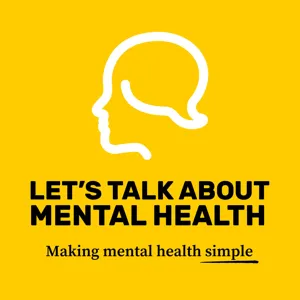Podcast Summary
Perfectionism: A Hidden Source of Stress for Lawyers: Perfectionism, beyond flawless work, can cause stress through unrealistic standards, approval seeking, and fear of mistakes. Therapy offers insights but coaching provides concrete techniques to change patterns.
Perfectionism, which is often seen as a desirable trait, can actually be a major source of stress for lawyers. Contrary to popular belief, perfectionism is not just about producing flawless work or maintaining an impeccable environment. It can manifest in various ways, such as setting unrealistic standards for oneself, constantly striving for approval, and feeling overwhelmed by the fear of making mistakes. The speaker, Cara Lowenthal, shares her personal experience of struggling with perfectionism despite believing she wasn't one. She emphasizes that while therapy can provide valuable insights, it may not necessarily teach one how to change the patterns that stem from perfectionism. Coaching, on the other hand, can offer a concrete way to intervene and alter those thought patterns through cognitive techniques. In her podcast, "Unfuck Your Brain," Cara continues to teach these techniques, expanding their applications beyond lawyer life.
Belief in constant self-improvement driven by unworthiness: Recognize perfectionism isn't about having a perfect life, focus on finding happiness in the present moment, and seek help if self-improvement leads to self-criticism and unworthiness.
Perfectionism is not about having a perfect life or doing things perfectly, but rather it's the belief that things could always be better. This belief can manifest in various areas of life, including work and relationships. Perfectionism is often accompanied by self-criticism and a constant focus on what's wrong, leading to a never-ending cycle of self-improvement driven by a sense of unworthiness. It's important to recognize that nobody has a perfect life, and it's normal for things to have imperfections. Instead of striving for perfection, focus on finding happiness and joy in the present moment. If you find yourself constantly thinking about what could be better, it's a sign that you may be a perfectionist, and it may be helpful to explore this belief further with a coach or therapist. Remember, self-improvement is good, but it's important to do it from a place of self-compassion and worthiness, rather than from a place of self-criticism and unworthiness.
The Pressure to Be Perfect: Recognizing the impact of societal pressures and cultural norms on the belief of constant self-improvement, and striving for self-compassion can lead to greater self-acceptance and peace of mind.
Perfectionism is a deeply ingrained belief that we should always be striving to be better, which can manifest in various aspects of our lives such as relationships, bodies, and homes. This belief, rooted in societal pressures and cultural norms, can lead to significant stress and anxiety as we constantly compare ourselves to unrealistic standards. It's essential to recognize that this belief is not inherent or necessary, and challenging it can lead to greater self-acceptance and peace of mind. The pressure to constantly improve ourselves is a complex issue with deep historical and cultural roots, but recognizing its impact and striving for self-compassion can help us live more fulfilling and less stressful lives.
Belief in constant self-improvement despite unclear why or how: Perfectionism can lead to negative consequences like procrastination, inertia, and self-criticism. Instead, practice self-compassion and focus on progress.
Perfectionism is the belief that you are not good enough and should constantly strive to be better, even when it's not clear why or how. This belief can lead to negative consequences such as procrastination, inertia, and critical tendencies towards oneself and others. Perfectionism often stems from an inherent feeling of unworthiness or flawedness, which can be traced back to religious or cultural beliefs about original sin or the need to improve oneself. However, these beliefs have been divorced from their religious context, leaving many people with a persistent sense of inadequacy and a desire to be better. This constant self-criticism and comparison to an idealized version of oneself can lead to feelings of exhaustion, overwhelm, and ultimately, inaction. Instead, it's important to practice self-compassion, accept ourselves as we are, and focus on progress rather than perfection.
The negative effects of perfectionism: Perfectionism can lead to self-criticism, controlling behavior, depression, focus on external appearances, jealousy, envy, and is rooted in shame. Recognizing and challenging these thought patterns can help us live more authentic, fulfilling lives.
Perfectionism can have detrimental effects on both ourselves and our relationships with others. When we hold ourselves to unrealistic standards, we can become overly critical and judgmental not only of ourselves but also of others. This can lead to depression, controlling behavior, and a focus on external appearances. Perfectionism can also fuel jealousy and envy as we compare ourselves to others and believe that they have something we don't. Ultimately, perfectionism is rooted in shame, the belief that we are inherently unworthy and cannot show our imperfections to the world. By recognizing and challenging these thought patterns, we can break free from the cycle of perfectionism and live more authentic, fulfilling lives.
The cycle of perfectionism and self-rejection: Perfectionism is a subjective and unattainable concept. Embrace imperfection and be kind to yourself to break free from the cycle.
Perfectionism is a self-defeating mindset that can create feelings of rejection and unworthiness. It's your brain's way of trying to keep you safe, but it ultimately leads to a cycle of self-rejection and the fear of imperfection. Perfectionism is not objective and no one or thing is perfect. Your brain will never let you believe you've achieved perfection because it's a subjective concept. Instead of striving for perfection, it's important to accept imperfection and remember that your brain's critical voice is not a reliable judge of your worth. The way to quiet your critical brain is not to be perfect, but to recognize that perfection is subjective and unattainable. Embracing imperfection and learning to be kind to yourself can help you break free from the cycle of perfectionism and improve your overall well-being.
The pursuit of perfection can hinder our self-worth: Instead of striving for perfection, focus on accepting imperfections and recognizing self-worth, drawing inspiration from loved ones and acknowledging mistakes don't define us.
Striving for perfection is an unattainable goal and can hinder our ability to feel good about ourselves. Our brains are not reliable narrators when it comes to determining when we've done enough or reached perfection. Instead, we should focus on accepting our own imperfections and recognizing that we are worthy and lovable regardless. We can practice this by reflecting on the people and pets we love who are not perfect, and by acknowledging that making mistakes does not define us or diminish our worth. It's important to examine the underlying reasons why we feel the need to be perfect, often rooted in beliefs about being lovable or worthy. By challenging these beliefs and embracing our flaws, we can save ourselves the energy and stress of constant striving for perfection.
Appreciating Imperfections: Recognize that perfection is unattainable, and focus on appreciating unique qualities instead.
We don't need to love or value others, or ourselves, because of their perfection. Instead, we should appreciate the unique qualities that make them who they are. Perfectionism can be a challenging mindset to overcome, but it's essential to recognize that imperfection is a natural part of life. To help with this, the speaker offers a worksheet on her website to guide listeners through understanding why they feel the need to be perfect and how to shift their mindset. The truth is, life and people are perfect in their imperfections. The speaker encourages listeners to consider joining her program, The Clutch, for expert coaching and a supportive community to help manage negative emotions and learn to live a life free from constant anxiety.





